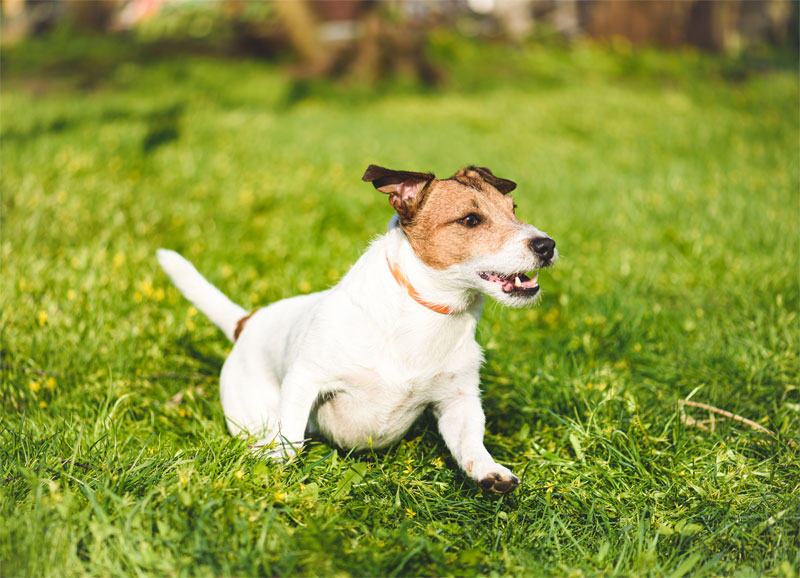While pet owners should always do their best to keep things that are poisonous for pets put away securely and out of their pets’ environments, pets can still sometimes get into and ingest things they shouldn’t. For Pet Poison Prevention Month in March, our veterinarians are raising awareness about the signs of pet poisoning so that you can recognize if your pet might have ingested a toxin, take immediate action, and seek emergency veterinary care right away.
Common Pet Poisons and Toxins
Substances that are poisonous or toxic to pets can be found just about everywhere you look. They’re in our refrigerators, pantries, medicine cabinets, cleaning supply cupboards, bathroom toiletries, gardens, garages, and in nature.

Ingestion of the following substances can cause permanent organ damage and even be life-threatening to pets.
- Medications - Many over-the-counter and prescription medications are toxic for cats and dogs.
- Foods - Many human foods are very dangerous for pets. Some of the most common include all foods from the allium family (garlic, chives, and onions), xylitol (artificial sweetener), chocolate, raisins and grapes, and certain nuts.
- Alcohol and Caffeine - Found in some of us humans' favorite beverages these substances are toxic to pets.
- Household Items - Cleaning products, pool chemicals, batteries, and other household items are toxic for pets.
- Pesticides - Pesticides and rodenticides of all kinds are toxic for animals. Talk with your exterminator about pet-safe options.
- Plants - Several common houseplants are toxic or poisonous for dogs and cats. Some of the most common include lilies, palms, tulips and several other bulb plants, rubber trees, poinsettias, mistletoe, and more.
- Sonoran Desert Toad - Sonoran desert toads are drawn to pets' outdoor water bowls. If a toad simply walks through your pet's water, this could result in a fatal poisoning.

Signs and Symptoms of Pet Poisoning
The signs and symptoms of poisoning can vary based on what particular toxin a pet has been exposed to and how much of it they have ingested. Pets that have ingested a poisonous substance sometimes only act a little strangely or seem slightly confused. Other pets might have severe symptoms such as:
- Persistent vomiting or diarrhea (especially when blood is present)
- Excessive drooling
- Appetite loss
- Pale gums
- Dizziness
- Fainting or collapse
- Seizures or trembling
If you have any suspicions that your pet could have possibly ingested a poisonous substance (for example, you notice odd behavior or appearance, signs and symptoms, or evidence like bite marks in toxic plants or packaging), we strongly encourage you to seek immediate veterinary care.

What to Do If Your Pet Ingests a Poison
- Rinse out your pet's mouth with water, spraying a hose across the mouth rather than into the mouth
- Make note of the substance ingested or save the label from the packaging.
- Contact Animal Poison Control for immediate instruction
- Contact and seek emergency veterinary care as soon as possible
If you suspect your pet has ingested a poisonous substance, it’s important to take action right away.



 Request Appointment
Request Appointment



